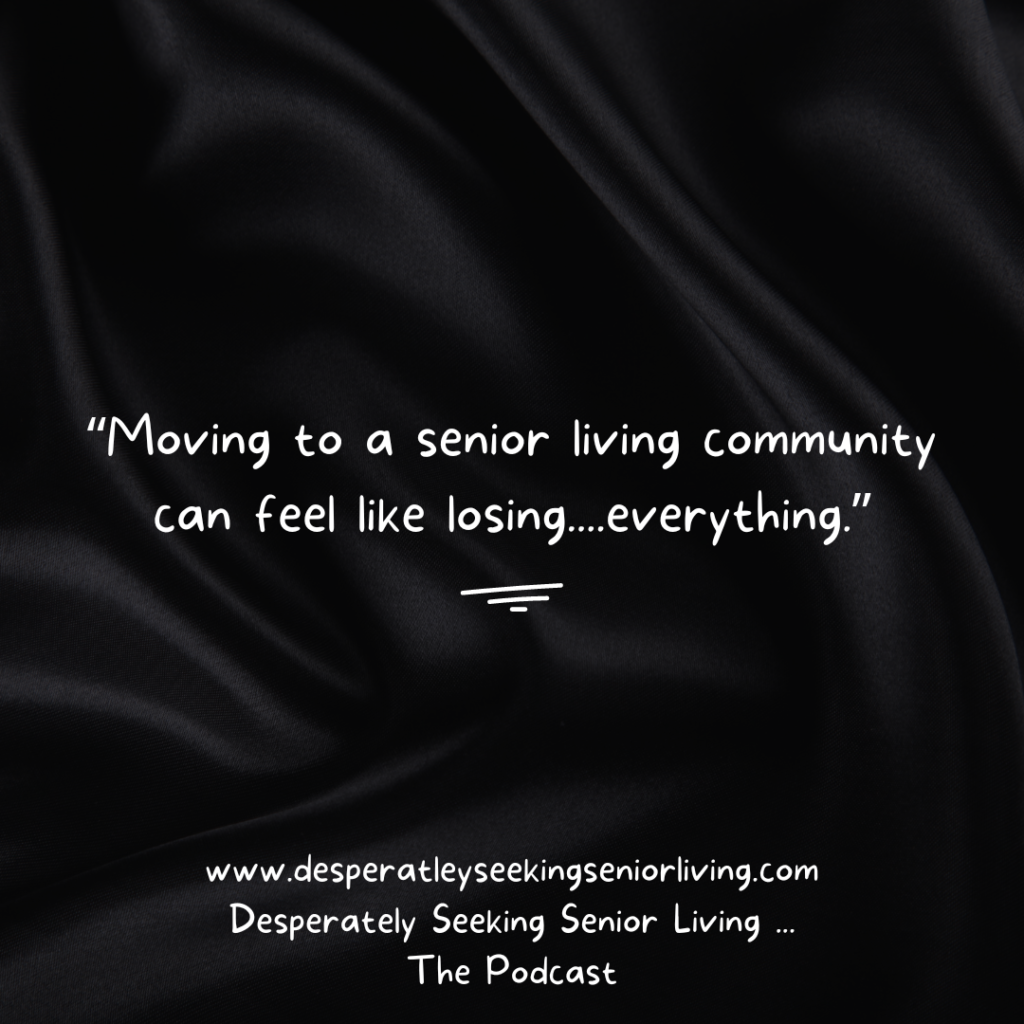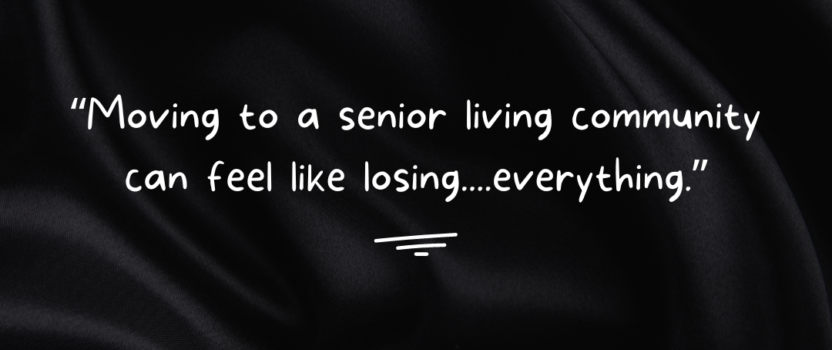What If My Loved One Loses Their Independence In Senior Living?

Your mom is not safe living on her own. The time has come for moving into senior living and she’s NOT happy about it. She keeps talking about how she’s losing her independence but you see it as gaining the freedom to do more since she won’t have to worry about keeping up with the house. So what’s she talking about?
This subject comes up a lot and in fact, most recently, with an amazing family that I worked with. All they cared about was finding the best place for their mom and even though their mom knew they had her best interest at heart, she was not happy. She had always been a very independent woman… she knew the reality of her situation but that didn’t make it less difficult for her. She felt like she was losing something…not gaining potential friends… not gaining great food…not gaining new fun experiences…but losing.
So this week we’re going to look at what this loss might look like for your loved one and ways you can help.
Let me guess…you probably live in your own place…you decide what’s for dinner…You decide who gets to come into your home…you decide if you want to go to the movies…go for a drive…go grocery shopping…go out to eat…well…you get the picture! When seniors move into a community they may feel loss of decision making in many areas and loss of decision making equals loss of independence. Some examples include:
Living arrangements
Daily routines and Social interactions
Healthcare Decisions and Care
Finances
The client I mentioned…understood that these things were no longer within her control. While she enjoyed going to restaurants, she understood that most of her meals were not going to be at her favorite restaurants or even cooked on her own stove. They were going to be provided in a big dining room. She understood that there were days when the bus would take her to the grocery store, days when that bus would take her on a ride or to an event, or to the doctor. She also understood that she most likely wouldn’t have much input as to where those trips would be or when they would happen. She understands that her money is now committed in a way it hasn’t been before and a lot more of it! Her budget and the way she’s thinking about personal shopping has to change. She also understands that when she needs assistance she most likely won’t have any say in who that person is that comes to provide the assistance and most likely not even when. As her needs increase, her decision making will continue to decrease.
So what can you do to help make this transition a little easier? Let’s look at each example.
Living Arrangements: Try to give your mom or dad a choice of apartments, a say in how the apartment is arranged and which of their belongings they want to bring. This can go a long way! Even if you’re making the decision of which community…They still get some say.
Daily Routines and Social Interactions: These are difficult because they’re usually on a set schedule in order to meet the needs of all residents. This includes meal times, activities and care schedules. Try to find a community that has a more resident focused program. Communities like this will offer open meetings where the residents can talk about what’s working and not working. They can even suggest menu items and specific activities. They often look to residents to bring their individual talents and hobbies to the community because it enriches the experience for everyone. I worked with a community that actually set aside an area in their activity room for a resident to set up her sewing.. this led to a sewing club that didn’t exist before.
Healthcare Decisions and Care: These should always be in the best interest of the resident but when another person is now managing your medications or telling you when your shower will be? It can definitely feel like a loss of independence. If there are certain aspects of care that your loved one prefers, such as showering in the afternoon and not the morning? Communicate this with the staff. Most should try to accommodate.
Finances: Can you imagine someone else managing your money? I can and it sounds terrible! This is one of the tasks that seniors usually have to delegate. My recent client specifically talked about how she had to watch her spending now because of this increased cost of community living. And even if handing over control of finances is agreed upon… it can still be difficult.
As you and I go through our day it is estimated that we make about 35,000 decisions…. every day. As your responsibilities increase… new job…more kids…caring for an aging parent…your decision making increases too. If your aging parent no longer works, has raised their children and now are no longer running a household or even driving? And if decision making equals independence…It’s no wonder many seniors feel this loss even more when moving into a community.
I know my client will settle in to her new home.. her new community. She already likes her neighbor “across the street”. Yes, of course it’s across the hall but those were her exact words… across the street. She’ll settle in and she’s in a great place… 99.9 percent of the seniors we work with, if the community was a good fit, adjust. It may take weeks…It might take months.
One of my clients was mad at her daughters for 8 years! But then, after making friends and becoming an active part of the community… she said she wished they would’ve encouraged her to move sooner…. Hopefully your mom or dad is excited about the move or at least they don’t see so much loss in it…but if they do…hopefully this helps makes it a little more doable.
If you’d like to check out our blog post in podcast form, be sure to take a listen HERE!
Click HERE for our Doable Download, which provides the resources referenced in the post.




